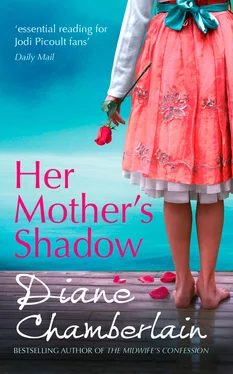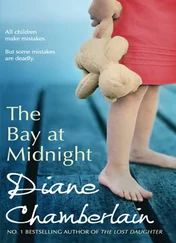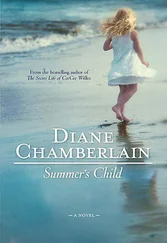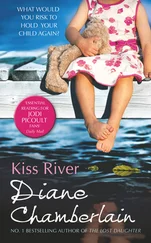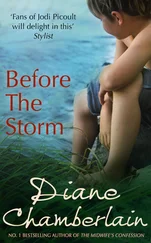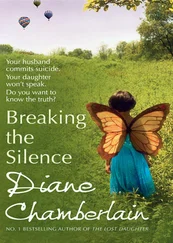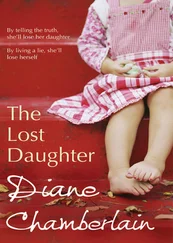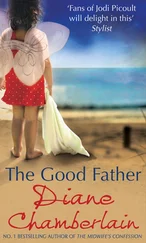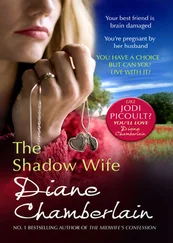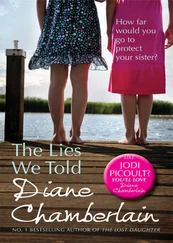Praise for
Diane Chamberlain
‘Emotional, complex and laced with suspense, this fascinating story is a brilliant read.’
—Closer
‘An excellent read’
—The Sun
‘This complex tale will stick with you forever.’
—Now
‘A hugely addictive twist in the tale makes this a sizzling sofa read … a deeply compelling and moving new novel.’
—Heat
‘This exquisite novel about love and friendship is written like a thriller … you won’t want to put it down.’
—Bella
‘A bittersweet story about regret and hope’
—Publishers Weekly
‘A brilliantly told thriller’
—Woman
‘An engaging and absorbing story that’ll have you racing through pages to finish’
—People’s Friend
‘This compelling mystery will have you on the edge of your seat.’
—Inside Soap
‘A fabulous thriller with plenty of surprises’
—Star
‘Essential reading for Jodi Picoult fans’
—Daily Mail
‘Chamberlain skillfully … plumbs the nature of crimes of the heart.’
—Publishers Weekly
‘So full of unexpected twists you’ll find yourself wanting to finish it in one sitting. Fans of Jodi Picoult’s style will love how Diane Chamberlain writes.’
—Candis
‘The plot is intriguing and haunting revelations will have you glued to the very end.’
—Peterborough Evening Telegraph
‘I was drawn in from the first page and simply could not put it down until the last. I think I have found a new favourite author.’
—Daily Echo
‘[A] gripping summer read that’s full of twists and turns
—5 stars’
—Woman’s Own
‘The compelling story of three friends who are forced to question what it is to be a friend, mother and a sister.’
—Sunday World
‘A gripping novel’
—The Lady (online)
‘Diane Chamberlain is a marvellously gifted author. Every book she writes is a gem.’
—Literary Times
‘A strong tale that deserves a comparison with Jodi Picoult for, as this builds, one does indeed wonder if all will come right in the end.’
—lovereading.co.uk
‘I couldn’t put it down.’
—Bookseller
Also by Diane Chamberlain
Kiss River
Keeper of the Light
The Lost Daughter
The Bay at Midnight
Before the Storm
Secrets She Left Behind
The Lies We Told
Breaking the Silence
The Midwife’s Confession
Brass Ring
The Shadow Wife
The Good Father
Her Mother’s
Shadow
Diane Chamberlain
GETS TO THE HEART OF THE STORY
www.mirabooks.co.uk
In memory of Nan Chamberlain Lopresti
So many people helped me with my research as I wrote Her Mother’s Shadow. For their various contributions, I would like to thank Rodney Cash, Kimberly Certa, Steve Cook, Paul Holland and my friends at ASA, who are always ready with an answer to my questions, no matter how esoteric those questions may be.
I am grateful to fellow authors Emilie Richards and Patricia McLinn for their brainstorming skills. The inspiration to make Bobby Asher a scrimshaw artist came from my favourite scrimshander, Cathy Guss, whose stunning craftsmanship I discovered a number of years ago.
Special thanks goes once again to Sharon Van Epps, for sharing with me her experiences as she attempts to adopt a child from India. As I write this, Sharon is still engaged in that struggle and it’s my fervent hope that her story has a happy ending.
Betsy Reitz earns a mention in these acknowledgements for winning the essay contest on my website. Betsy’s love of the Keeper of the Light trilogy was evident in her essay. It’s readers like Betsy who make writing worthwhile.
As always, I’d like to thank my agent, Ginger Barber, and my editor, Amy Moore-Benson. I am so lucky to be able to work with both of them.
I would love to hear your thoughts about Her Mother’s Shadow. Please visit my website at www.dianechamberlain.com.
HER MOTHER’S SHADOW
The girl in the kitchen
has her mother’s eyes
the color of new jeans
and old sapphires.
She has her mother’s hair,
scarlet and sienna.
Her mother’s lips
and bird feather hands.
But …
When she turns her head
just so,
The indigo eyes are
flecked with amber.
The hair,
streaked with gold.
She is not her mother
at all.
—Paul Macelli
Christmas 1990
THERE WAS CHEER IN THE HOUSE IN THE HEART of Manteo. From the outside, the large two-story frame building that served as the battered women’s shelter was nondescript. There were no Christmas lights hanging from the eaves, not even a wreath on the door, as if the people who ran the house were afraid to draw attention to it, and Lacey supposed they were. Cruel men had put the women and children here, the sort of men she had no experience with and found hard to imagine. But she could see the fear in the women’s faces and knew those men existed. More than that, she did not really want to know.
Although there was no sign of the season outside the house, inside was another story. Fresh garlands decorated the railing that led up to the bedrooms, and branches of holly were piled on top of the huge old mantel. The scent of pine was so strong it had seared Lacey’s nostrils when she first walked inside. A huge tree stood in the corner of the living room, decorated with white lights and colored glass balls and topped by one of her mother’s stained glass angels. The tree was alive, and Lacey did not need to ask if that was her mother’s doing. Of course it was. Annie O’Neill always insisted on live trees. They had one at home, and Lacey knew both trees would be taken inland, away from the sandy soil of the Outer Banks, to be planted once the Christmas season was over.
She had not wanted to come to the battered women’s shelter tonight. She’d wanted to stay home and listen to her new CDs and try on her new jeans with the rivets down the sides. She’d wanted to talk to her best friend, Jessica, on the phone to compare the gifts they’d received and decide what movie they would see the following afternoon. But her mother had insisted.
“You have so much,” she’d said to Lacey the week before. “You will have already opened your presents and had Christmas dinner with me and Daddy and Clay. These women and their children will have nothing. Less than nothing. They’ll have fear for Christmas, Lacey.” Her mother spoke with great drama, the way she always did. “Their families will be torn apart,” she continued. “Serving them dinner, singing a few carols with them—that’s the least we can do, don’t you think?”
Now, standing behind the long tables and dishing out Christmas dinner to the women and children, Lacey was glad she had come. At thirteen, she was certainly the youngest of the volunteers, and she felt proud of herself, proud of her kindness and generosity. She was just like her mother, whom all the other volunteers turned to for direction. Annie O’Neill was the most important person in the room. The tree in the corner probably wouldn’t exist if it weren’t for her mother. The buffet tables would probably hold half as much food. Maybe the entire shelter would not be here if it weren’t for Annie. Lacey wasn’t sure about that, but it seemed a real possibility to her.
Читать дальше
